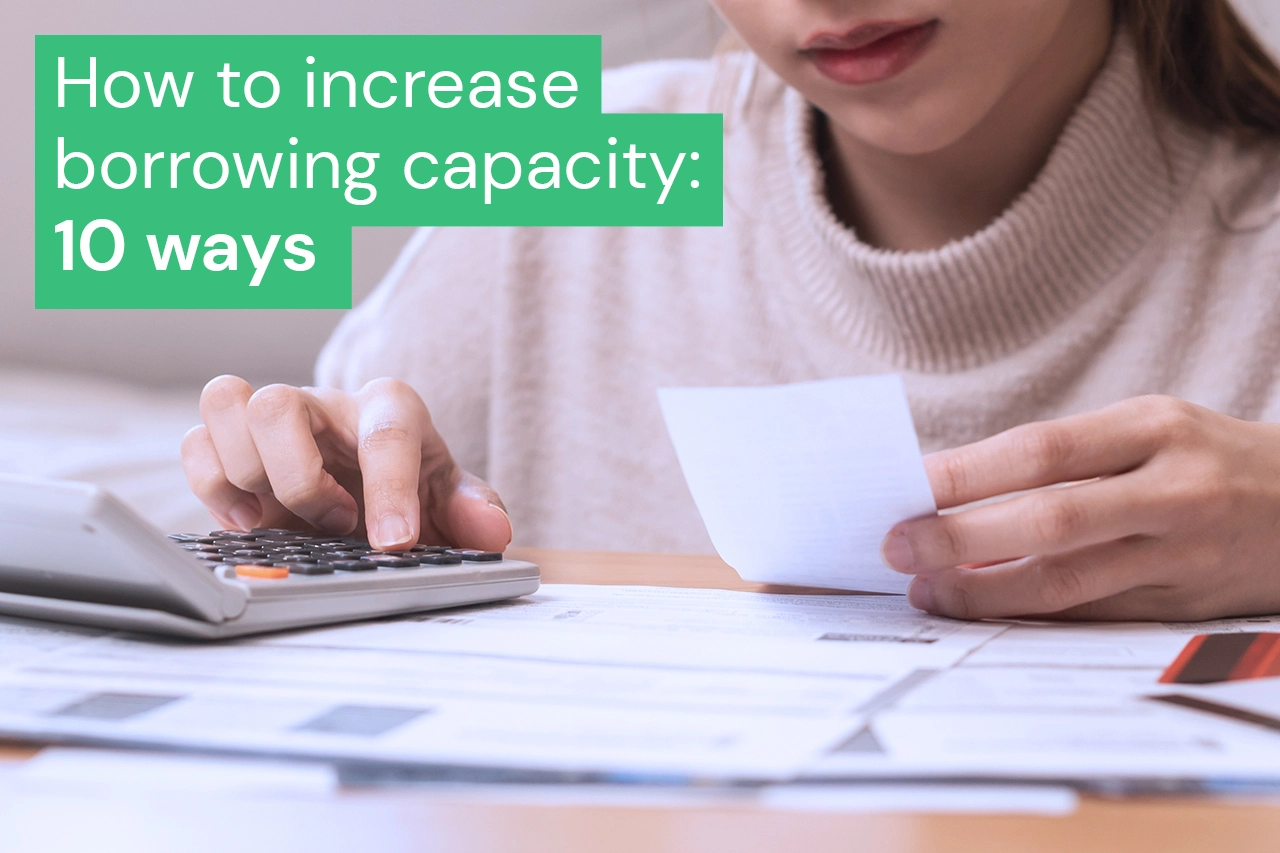Tired of dreaming about that perfect home, only to be told by the bank that you can’t afford it? It’s time we do something about that — and we’re about to spill the beans on how to increase borrowing capacity in this blog post.
Say goodbye to renting and hello to property ownership with a few smart tips and tricks to get a home loan increase up your sleeve. Whether you’re wanting to increase your borrowing capacity for investment property or for your first home, this resource is for you!
One way to increase your borrowing capacity is to increase your income. If you are married or have an additional person in your household who is able to work, consider adding their income to yours when applying for a loan. You may also see an improvement by increasing the amount of hours worked or taking on overtime if possible. Another way to boost your borrowing power is by increasing your existing credit limit, such as with a credit card or personal loan from a bank or other lender. Increasing these limits will show lenders that you have experience managing larger amounts responsibly which will give them greater confidence in lending to you at higher levels.
What is my borrowing capacity?
Borrowing capacity refers to the amount of money that a person is eligible to borrow from a lender. A lender will assess their lending capacity based on the borrower’s income, deposit, expenses, credit history, and other factors.
“How much home loan can I get?”
Borrowing capacity determines the size and terms of your home loan. This in turn affects the type and cost of the home you can purchase.
How to calculate borrowing capacity
Calculating borrowing capacity in Australia typically involves considering the following factors:
- Income: This includes your salary, any rental income, and other sources of regular income. Lenders typically look for a stable and reliable income when evaluating your borrowing capacity.
- Expenses: This includes regular expenses such as housing costs, transportation, and food, as well as debt obligations like credit card balances, car loans, and student loans. Lenders want to see that you have enough disposable income to make mortgage payments.
- Credit history: A good credit history and score can help increase your borrowing capacity. A history of missed payments or defaults can have the opposite effect.
- Loan-to-value ratio (LVR): This is the ratio of the loan amount to the value of the property you’re buying. Most lenders require a deposit of at least 20% of the property value so you won’t have to comply with Lenders Mortgage Insurance.
- Loan type: Different types of loans may have different borrowing capacity calculations. For example, some loans may allow you to borrow more if you’re willing to pay a higher interest rate.
It’s important to keep in mind that every lender has their own lending criteria, so it’s a good idea to shop around and compare options. You can ask a mortgage broker to help find you a good home loan product or determine your maximum borrowing capacity.
10 Tips on how to increase borrowing capacity
- Boost your income. Consider taking on a side hustle or asking for a raise to increase your overall income. The more you earn, the more you can borrow.
- Pay down debt. Reducing your debt obligations can free up more of your income for mortgage payments and increase your borrowing capacity. A lower debt-to-income ratio will help in getting a home loan quicker.
- Improve your credit score: A good credit score can give you access to lower interest rates and better borrowing terms, which can increase your borrowing capacity.
- Consider a longer loan term. A longer loan term can lower your monthly payments and increase your borrowing capacity.
- Make a larger deposit. A larger deposit can reduce the amount you need to borrow and increase your borrowing capacity.
- Get pre-approved for a loan. A pre-approval from a lender can give you a good idea of your borrowing capacity and help you make more informed decisions when shopping for a home.
- Keep your job stability in mind. Lenders prefer borrowers with stable and reliable employment, so try to stay with the same employer for as long as possible.
- Consider getting a guarantor. A family guarantee can increase your borrowing capacity by allowing you to borrow against the equity in a family member’s property.
- Be mindful of your lifestyle spending. Big-ticket purchases like a new car or expensive vacations can eat into your borrowing capacity. Be mindful of how you’re spending your money.
- Work with a home loan broker. We cannot stress this enough: a mortgage broker will champion your bid to getting a home loan like no other.
Why work with a mortgage broker to increase home loan?
Perhaps the best tip on how to increase borrowing power is to connect with a mortgage broker. Here at Stryve Finance, our mortgage brokers have:
- access to a wide range of lending products across a panel of over 30 banks — we could find more loan products than you would on your own;
- the experience and knowledge to understand the lending criteria of various lenders and can help you present your financial information in the best possible light;
- the negotiating power needed to help secure better terms, interest rates, and borrowing limits for you;
- technical expertise to help you gather the necessary documents and paperwork to apply for a mortgage loan. We can also help you understand the terms and conditions of the loan.
Give us a call today at 1300 202 285 or click the button below to book an appointment with our team.


